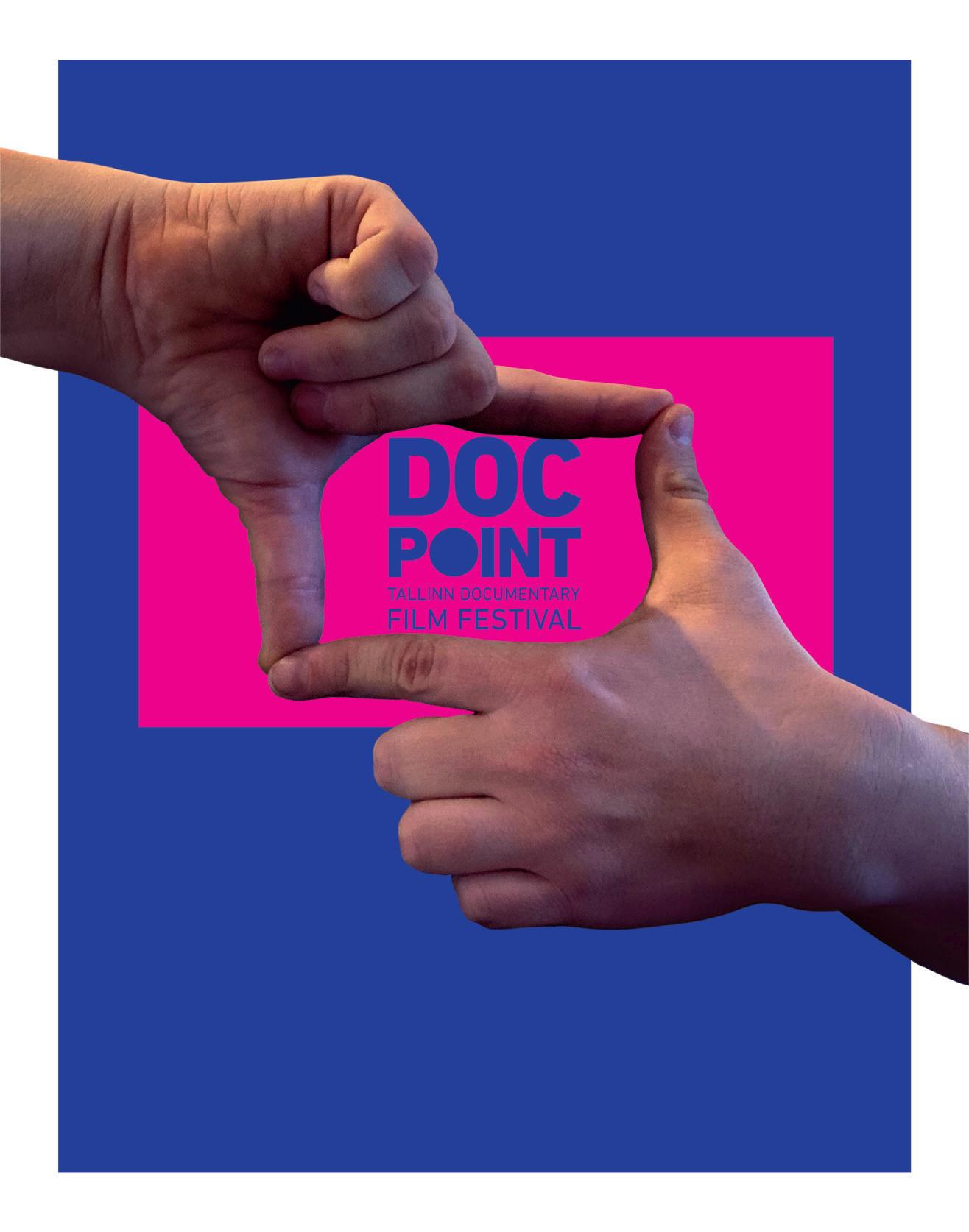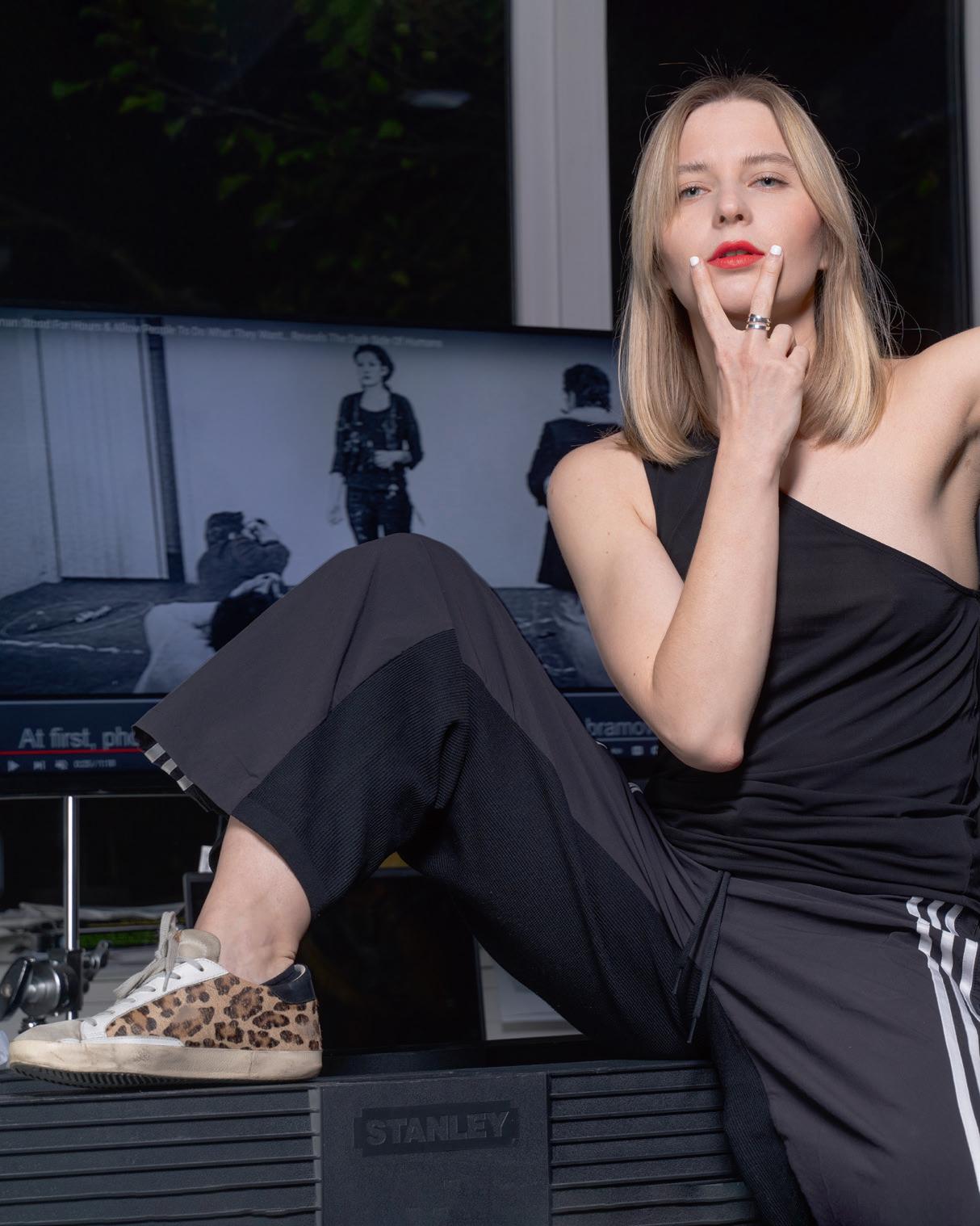
11 minute read
IN FOCUS Volia Chajkouskaya
DocA Power house
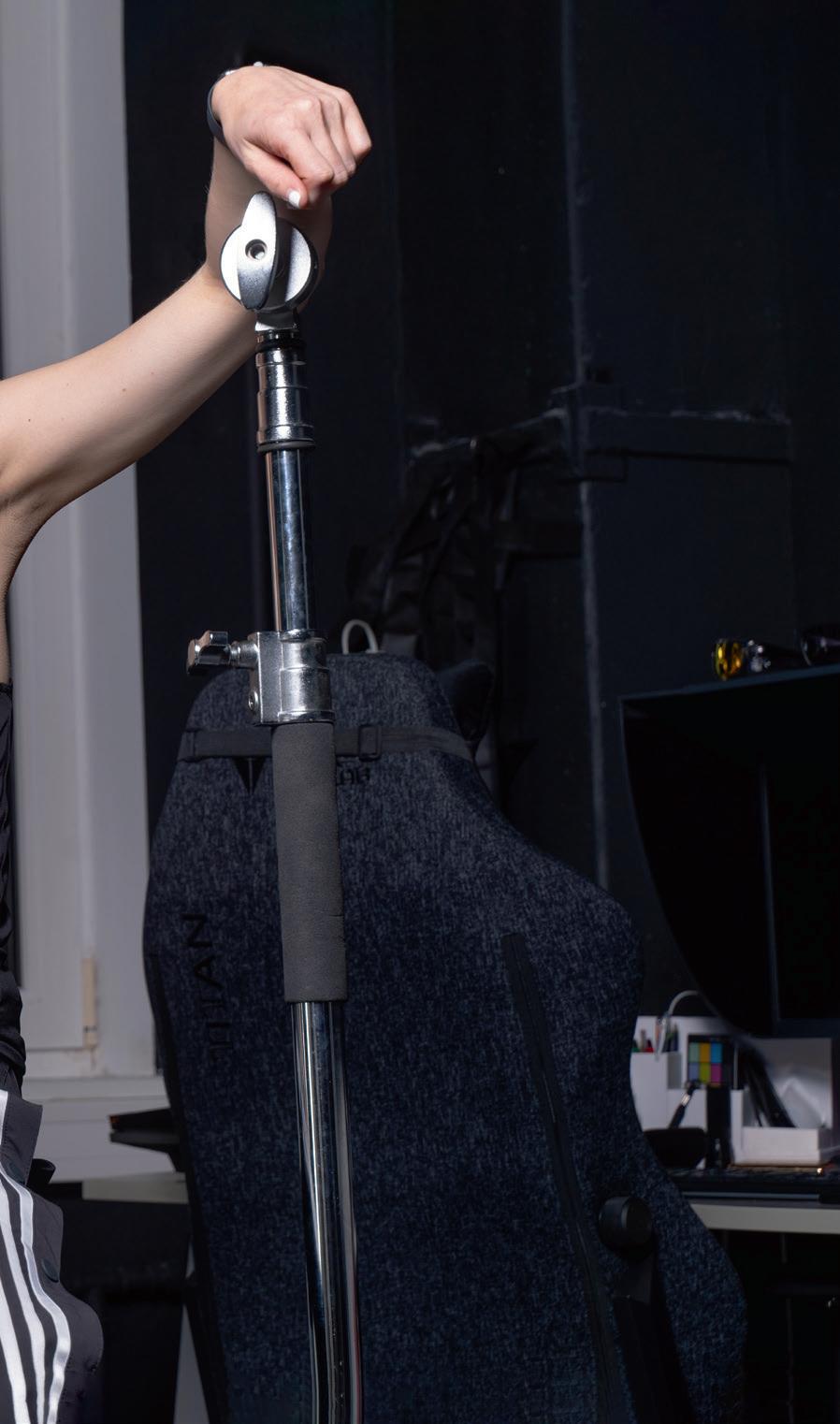
From Yoyogi Park in Tokyo, to grim stories from Belarus, young and talented producer and director Volia Chajkouskaya makes waves internationally.
By Filipp Kruusvall Photos by Viktor Koshkin
Her directorial debut short documentary Common Language had a premiere at Jihlava International Documentary Film Festival and is selected for PÖFF Shorts. As a producer, she’s behind director Max Golomidov’s feature documentary Yoyogi that has successfully appeared at Meeting Point Vilnius, Sheffield MeetMarket, and Sunny Side of the Doc. Producer Volia Chajkouskaya talks about the project that brought the fascinating life of Tokyo’s biggest park Yoyogi to the screen.
Max Golomidov from Estonia is a talented cinematographer and is known for Anshul Chauhan’s Kontora (winner of Grand Prix for the Best Film of PÖFF) and several internationally appraised documentaries. Where did he get the idea to shoot his debut film as a director? He started to just film Yoyogi Park in Tokyo at some point. This intention hit him because initially, for a moment back then, he had just relocated to Tokyo and was missing Estonian landscapes and spaciousness in a crowded megalopolis. He was visiting many places in Tokyo, looking for something that could remind him of Estonian nature, and he found Yoyogi Park. At first, he started to take pictures, but then realised images were not enough and so he started to film. He contacted me with the very raw idea that he wanted to make a film about a park, and we began to discuss and unravel it. In a way, I guess, I convinced him that he should be a director, not only a cinematographer of this project since it’s his idea.
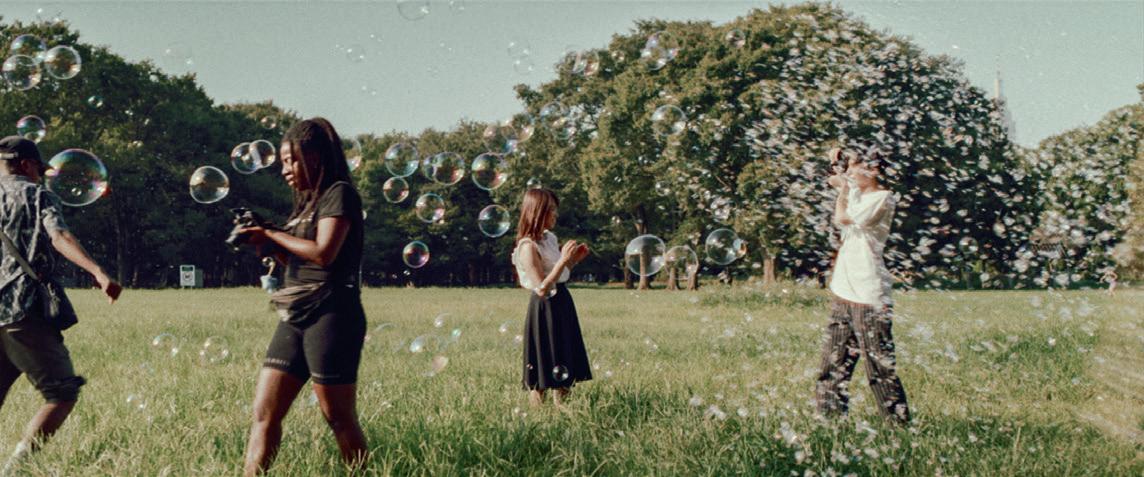
What makes this project so unique? Max has a very special gaze. He is observant and patient; he can ‘hunt’ reality, waiting for the best to come. It’s not the easiest and shortest way to make films. Moreover, this approach might be not understandable for some people. Because such documentary films are very demanding on the viewers - one has to be a very advanced and prepared viewer to perceive and enjoy such films as our upcoming Yoyogi. This approach, which denies and minimises any manipulation of viewers’ emotions, is extraordinary.
Besides, it’s also a co-production of Estonia and Japan, which is quite a combo and does not happen so often.
What is Max doing in Japan? Max is working in one of the world’s most prominent colour grading studios; they do colour for Disney and companies like that, plus many Japanese pop and rock stars. And I guess Max has a very special eye. For example, I can always tell if he has done the colour; it’s very recognisable.
How would you describe his working method? It’s pure observation, and I would even say - hunting reality, not interfering or interacting, just observing, like sitting in the bushes and waiting for the right/best moment to come. It requires a lot of patience, kindness, and space on hard drives.
What is the most surprising thing you discovered about Yoyogi Park? Unfortunately, I haven’t been to Yoyogi Park in real life yet. However, while watching rushes of the film, I got acquainted with it quite well; we have many hours of footage that was not included in the film, and hopefully, we can make an art exhibition out of it.
From what I saw, I guess the most surprising was to discover how loose Japanese people are. They can do meditation, yoga, weird dancing, and spiritual practices considered quite intimate in public places
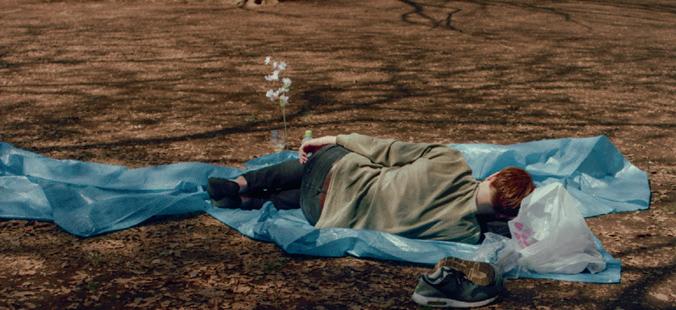
As a producer, Volia is behind director Max Golomidov’s feature documentary Yoyogi that has successfully appeared at Meeting Point Vilnius, Sheffield MeetMarket, and Sunny Side of the Doc. like parks. And it all looks much more outstanding than it sounds. While observing, one discovers unexpected beauty and interest in relatively simple things.
Believe it or not, I had a stereotype in my head that Japanese people are very shy, but anyone else who had such a stereotype will change their opinion after watching our film.
Also, one of the surprising things was seeing rehearsals of Japanese sports fans in the park. Even British football fans can envy Japanese fans for the dedication they have for shouting. And on top of that - it looks hilarious.
At what stage is the project Yoyogi right now? The project is in post-production. We started editing while still being in production because we have a lot of material, and because we wanted to find the right form and best structure for such material. It’s worth mentioning that our editor is Dmitrii Kalashnikov, with whom I started my film producer’s career. We did his documentary film The Road Movie together in 2016. And I am happy we are working with Dmitrii on such a great international project as Yoyogi. We will be ready for a release in 2022.
What other projects are you are currently working on? Besides Yoyogi, the most important project is the one
I’m directing and producing in Allfilm. The working title of this documentary is The Wife Of.
It’s about the Belarusian freedom movement and the wives of political prisoners. We film in several countries, and Estonia is one of the shooting and co-production countries. I am not saying too many details publicly yet because of security reasons. But we are still looking for more funds and partners for this project. And I am happy to work on a timely project, help make a positive change, and focus on humanism, solidarity, and the power of women.
The Wife Of is in late development/production and was selected for the Ex Oriente Film workshop and EAVE Change. My directorial debut brings extra meaning and value to this project, particularly for me.

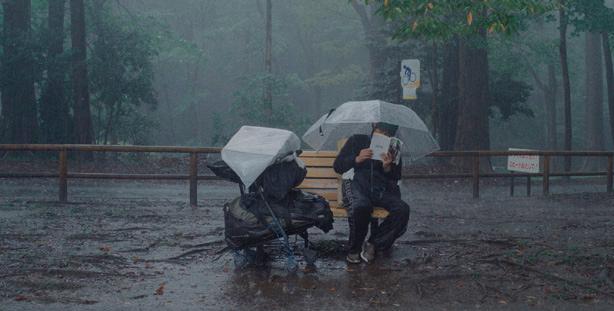
You have worked for several years in Estonia. When did you first hear about the Estonian film industry? What makes Estonia an attractive place to live and work for you? I come from Belarus, where there is no film industry from a European perspective, and I am a completely self-made and self-taught producer and filmmaker from the start. Travelling around film festivals and markets starting from 2014 was my way of learning about the film industry – sort of learning by doing.
Apart from that, I have run the Northern Lights Nordic Baltic Film festival in Belarus since 2015, and since 2017 we have been screening Baltic films there. This was when I started to look at the Estonian film industry, first as a festival programmer and runner, searching for Estonian films to show in Belarus. In particular, at Berlinale, I was always carefully exploring the Estonian Pavilion, checking all the info, reading catalogues, watching films, networking.
At the same time, I always had a dream to make films myself. I researched programs and opportunities, and once even applied for KinoEyes, for which the Baltic Film and Media School is one of the premises. But I was not accepted and I started to produce, and established my company in Belarus. But Belarus is a hard country in which to live and to make films. I did not feel secure either as a person or as a producer. At some point, I decided that I should start a company abroad, and that I also had to close the gap and get an education in film to get rid of the impostor syndrome that was pursuing me from time to time. I found out about the BFM documentary film Masters Degree; I got to know that one of the professors will be Riho Västrik, and I thought: amazing, that’s what I need, and that’s the university fee I can try to find. It was much less money than going to study in London. I also figured out that the Estonian e-residency permits you to launch a company even if you are not an EU citizen; just great opportunities that Estonia gives to people from outside. So the puzzle came together.
Yoyogi is the project that brought the fascinating life of Tokyo’s biggest park to the screen. What did you do before? Where did you study? My Bachelor is in journalism. I graduated from the Belarusian State University’s Institute of Journalism, and my experience as a journalist started already in the 9th grade. I was more an art journalist/analyst, and an art and film critic. I was also writing about social issues from time to time. Then at some point, I decided to quit journalism because it’s quite a tricky profession in such a totalitarian country like Belarus, and I worked two years as a PR-manager in a prominent Belarusian IT-company. My journalistic background, and an eagerness for action, however, pushed me to launch a corporate newspaper there.
About that time, I was invited by the Finish Liaison Office in Belarus and the Nordic Council of Ministers Lithuanian Office to organise screenings of Nordic Films. It was supposed to be just a one-off event that I managed to turn into an annual festival and expand. It’s already now seven years old, for the last two years we did completely online editions. Who knows, I might need to relocate the festival to Estonia because of the political situation in Belarus.
How would you describe your goals and dreams as a producer or director? What are the main challenges? The main challenge has always been the same, and comes from the inside: self-esteem and life uncertainties. This is one of my inspirations to expand my pro-
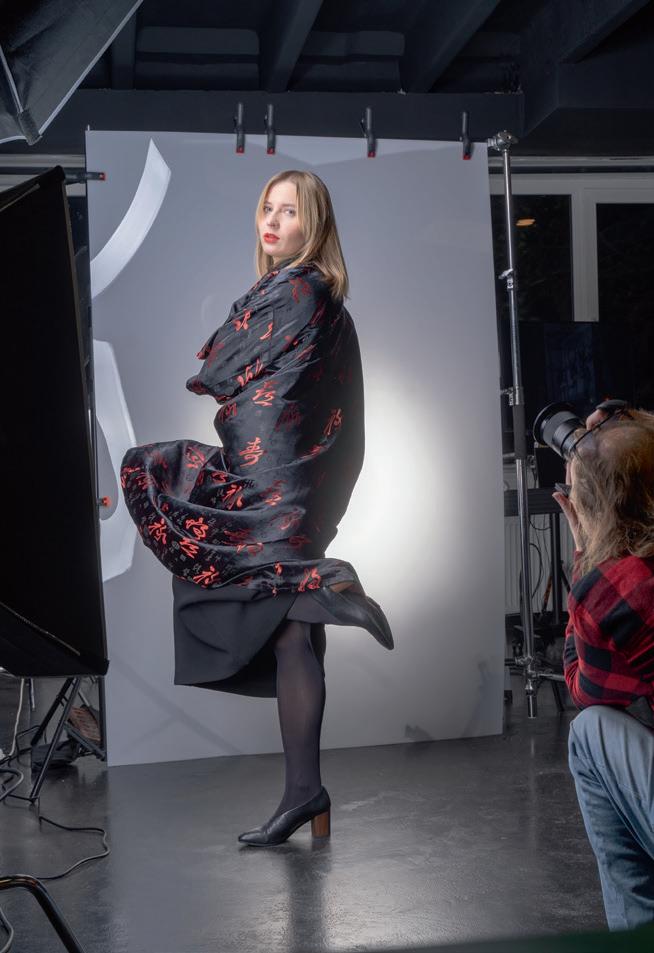
fessional career and start to direct films, not only produce films by other directors.
At some point, I realised that I wanted to be more vocal, have a voice, and talk about ideas. Let’s be fair: producers are often perceived (and this is also a very patriarchal attitude, unfortunately) as a function, and directors and other film people rarely talk with producers about ideas. Also, it is dangerous to open up your mouth in Belarus because you can end up in prison. Luckily, Estonia is a free country, and I can talk here. So my challenge is also – going through my fear of self-expression.
As a producer, I believe I have managed to undergo many challenges already, including how in school I was terrible at maths. And look at me now – I am making budgets, although it took some time, nerves, and perseverance. Maybe the main challenge is running my own company Volia Films, sustainability is a challenge that I haven’t sorted out yet, but I keep on pondering about it. At some point, I realised that it was hard for me to move to a foreign country, Estonia, study in BFM, keep producing, keep my production company running, and earn a living out of it. I wanted to join a more prominent company, contribute to it and learn from it, be safer on all levels. So, I was fortunate to join Allfilm, where I am now directing (and producing) my first feature documentary.
My goal is to keep doing what I am doing more sustainably and keep on learning, and I am sure it will lead me the right way.
Volia’s main challenge in Estonia is to run her own company Volia Films. What is your source of inspiration and strength? I get inspired when I read, or watch films, when I travel to nature, and when I am alone and have time to think, write, meditate, and do yoga.
Also – talking and sharing about life and my projects in a safe environment inspires me a lot. When I know I can share all my strengths and vulnerabilities without being judged, and I get power in dialogue.
I am also inspired and empowered by such women as Marina Abramovich, Susan Sontag, Hannah Arendt, Svetlana Aleksievich, and many others.
How do you see the future of the film industry? What are the trends you have noticed, and what are you looking forward to? We live in exciting times. A few years ago, I thought I could guess the trends in film. But now – I won’t take the responsibility to predict anything. What I observe, and am very happy about, is that more and more women generally, and more and more women who used to do different jobs in the film industry, have started making their own films. Something in the air makes us want to tell our stories and open up, and that the world is also interested in them. Incidentally, most of the films I selected for Northern Lights FF 2021 are directed by women; most of them are first-time directors with a background in acting, producing, and management. This is amazing!
On the other hand, we see that the VOD platform has taken over, and now everyone ‘wants to work with Netflix’. Where will it lead us – I am not sure. As well, where does the overproduction of films (as well as everything else in the world) lead us to - I am not sure.
However, several years ago, I said that Belarus is a ‘Klondike’ for documentary filmmakers, because it’s so underrepresented and under-discovered. Well, given the political struggle going on in Belarus – I assume this is still true.
Still, I am an optimist. And as David Lynch said: “I am wearing the dark glasses today because I see the future. And the future is very bright.”. EF
